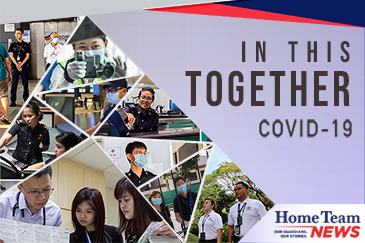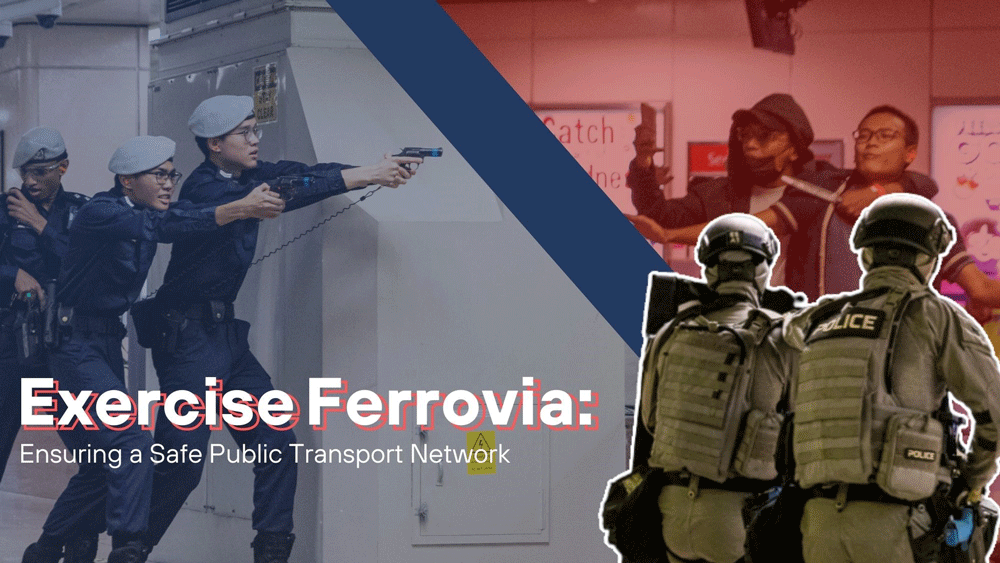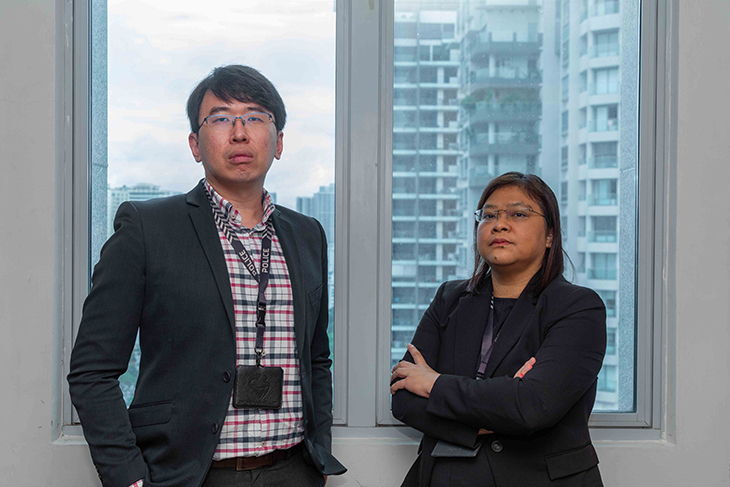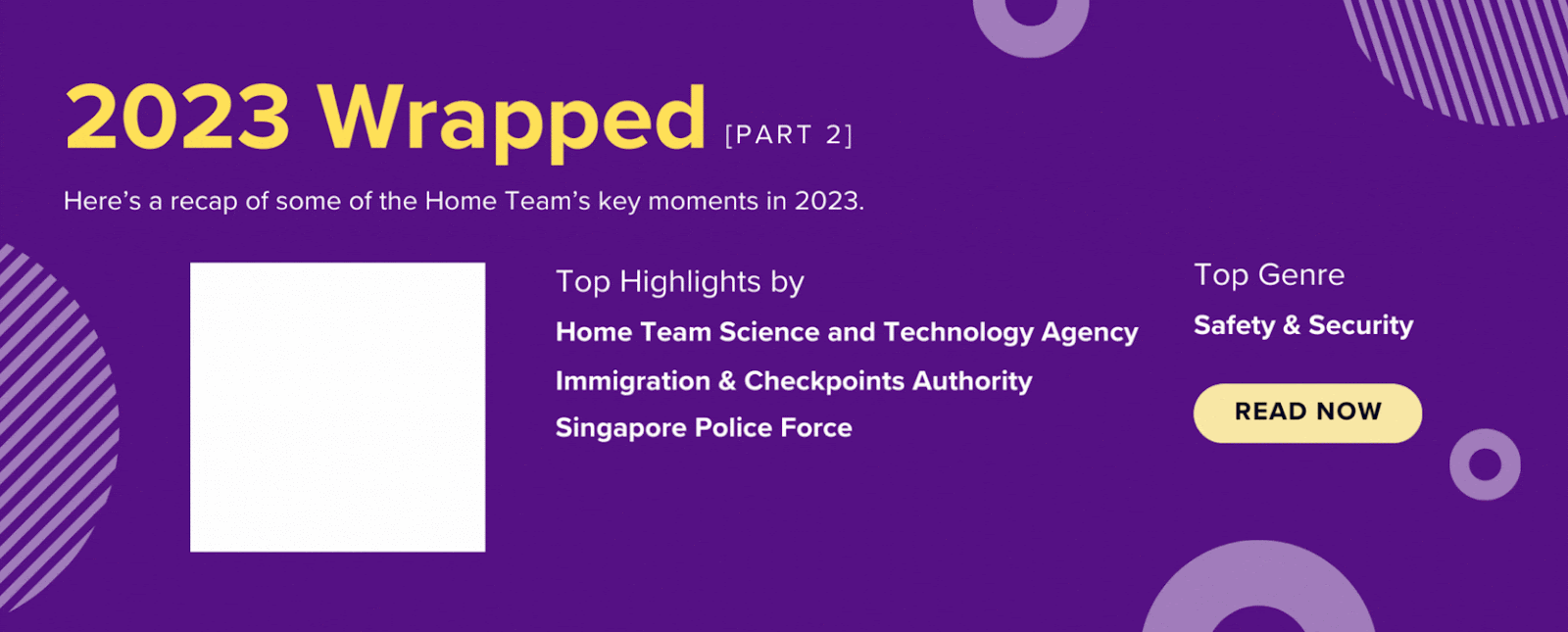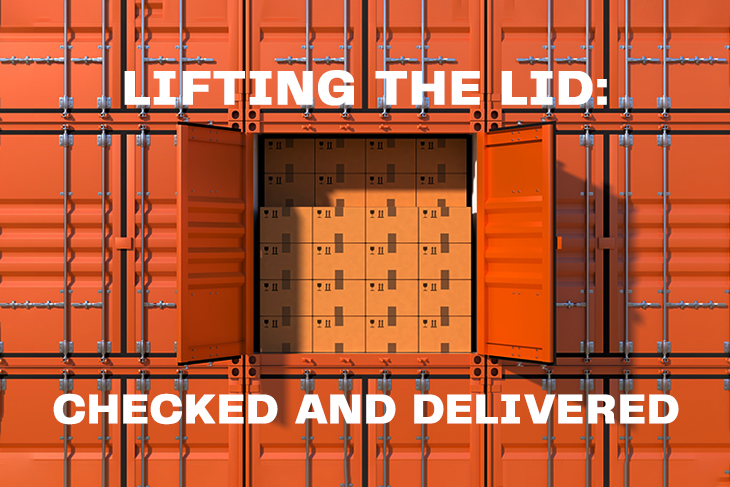 Ranked among the world’s top maritime hub
Ranked among the world’s top maritime hub, there is a constant stream of goods passing through our checkpoints. Learn how officers from the
Immigration and Checkpoints Authority (ICA) at our sea borders keep smuggling at bay!
According to the
Immigration & Checkpoints Authority (ICA) Annual Statistics Report 2022, over 9.7 million containers, consignments and parcels were cleared in 2022.
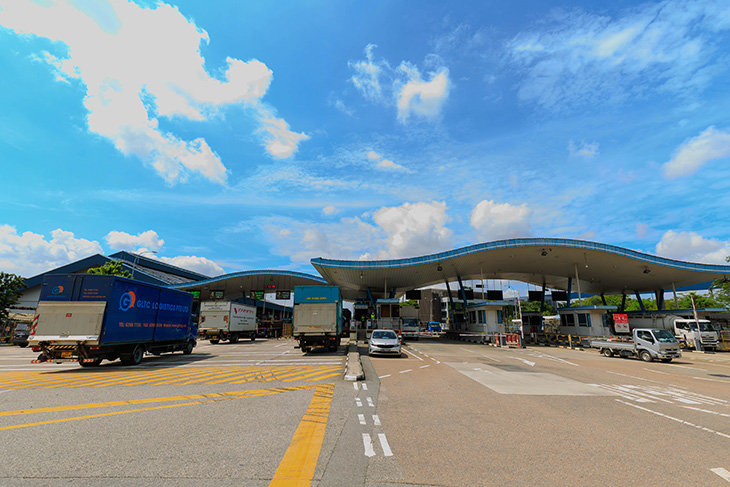
ICA plays a pivotal role in maintaining vigilance to thwart smuggling attempts through our borders. We head over to Jurong Port, one of the many sea checkpoints, to find out more about the clearance of sea cargo.
The Primary Line of Defence
We arrived at Jurong Port to the hustle and bustle of trucks entering and leaving the main gate.
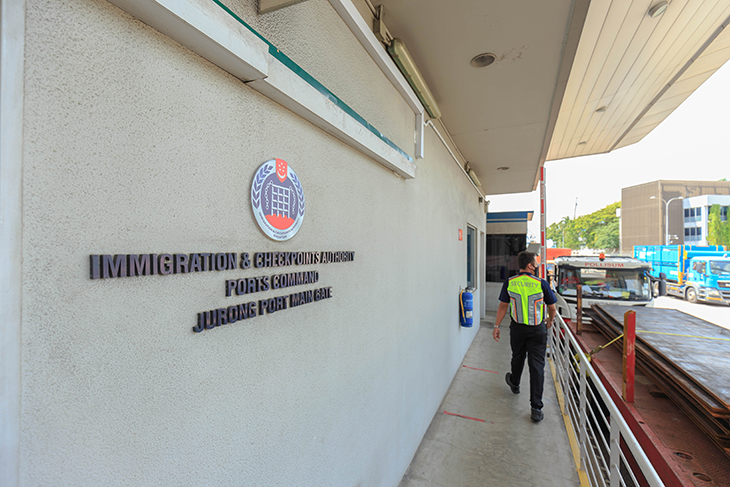
Passing through this gate are conventional cargo, including concrete, steel bars and IT chips transported via non-containerised vehicles. These goods are exported and imported regionally by local and overseas merchants.
Fun fact: Livestock such as pigs are also imported into Singapore via the sea route!
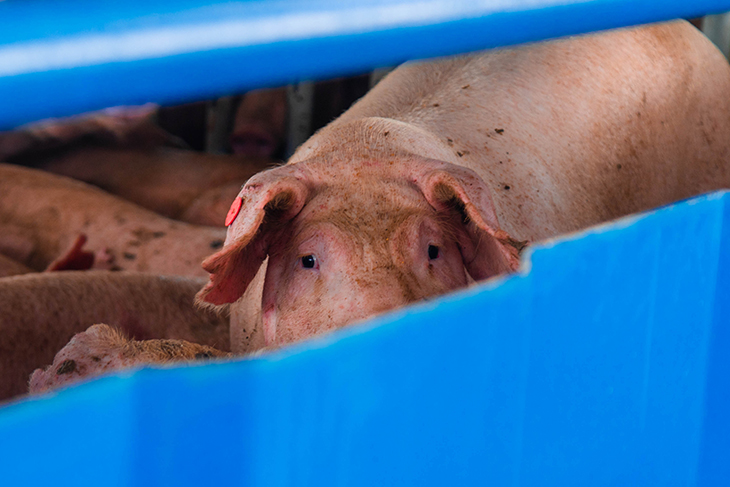
Oink! Oink! PHOTO: Joash Tan
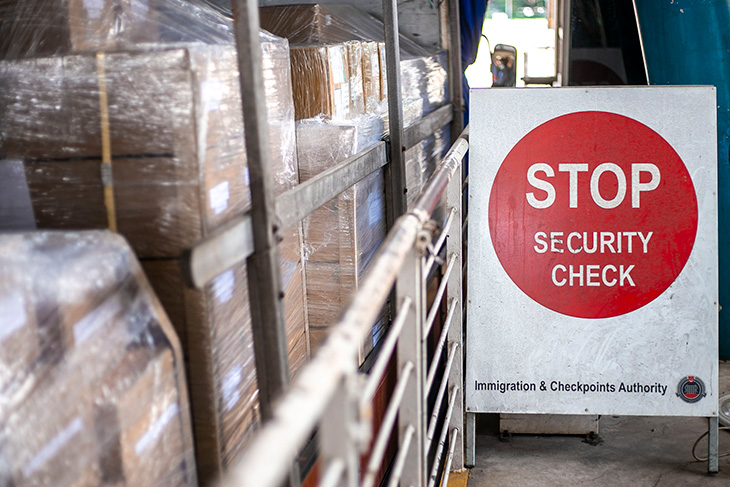
Beyond Jurong Port’s main gate is the Free Trade Zone (FTZ), an area that facilitates entrepot trade and transhipment activities. Cargo can be stored without being subjected to GST by the Singapore Customs at this point. Goods that pass through here are either bound for overseas or the local Singapore market.
ICA Image Analysts (IAs) are responsible for analysing the scanned images of all containers and cargo to prevent the entry of dangerous goods into Singapore.

PHOTO: Chloe Low (Left), Alvin Loh (Right)

PHOTO: Joash Tan (Left) and Alvin Loh (Right)
Officers also tally the scanned images against permit information for cargo clearance to ensure the declaration is accurate. Those with no anomalies can proceed to exit the port.
Should IAs detect any anomalies in the scanned images, the vehicle will be directed for secondary inspection.
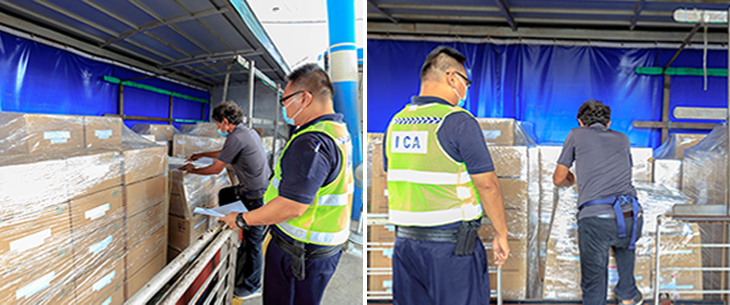
Conducting additional checks on the cargo. PHOTO: Alvin Loh
#didyouknow New Clearance Concept (NCC) Cargo
Since October 2021, the sea cargo clearance process has been streamlined at Tuas Port with the introduction of “On-the-Fly” Clearance as well as Mobile Cargo Screening System (Mobile CASS).
Leveraging artificial intelligence and data analytics, the “On-the-Fly” Clearance automates security screening and cuts down the time required from 14 to three minutes. Meanwhile, the new Mobile CASS device facilitates paperless clearance of cargo permits as ICA officers can access and digitally validate the permits.
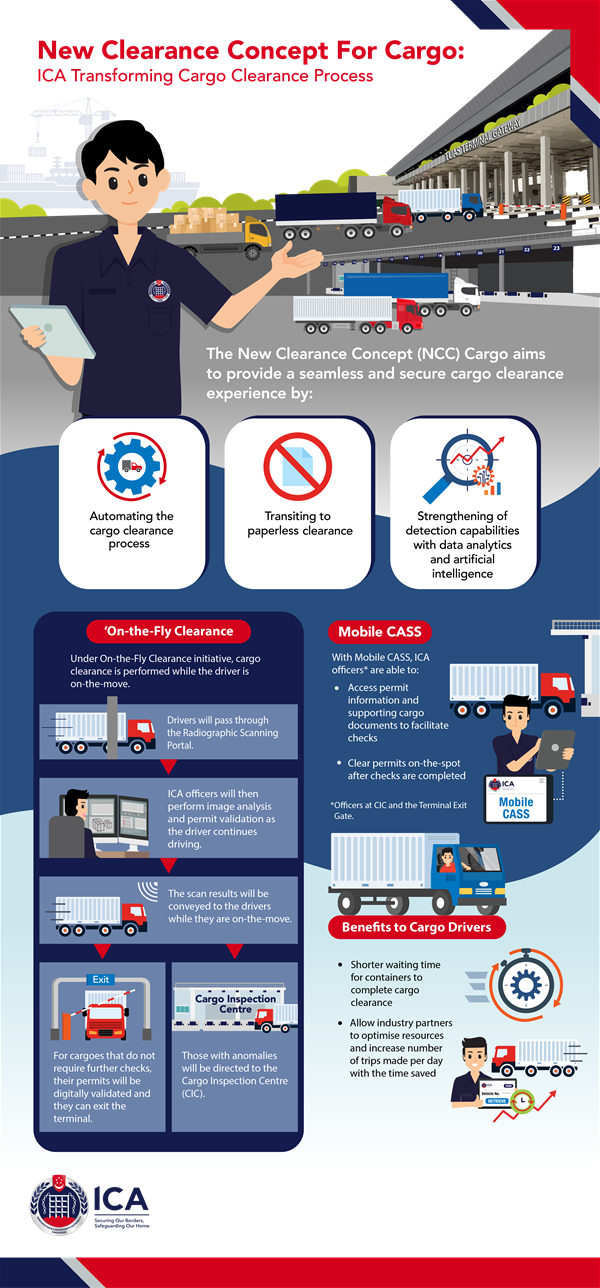
A summary of how NCC Cargo works. GRAPHIC: ICA
|
Now, what about that gigantic sofa that you bought online for your new BTO flat?
High-value goods and bulky items that are transported via containers will be directed to the Jurong Port West Gate for cargo clearance instead.
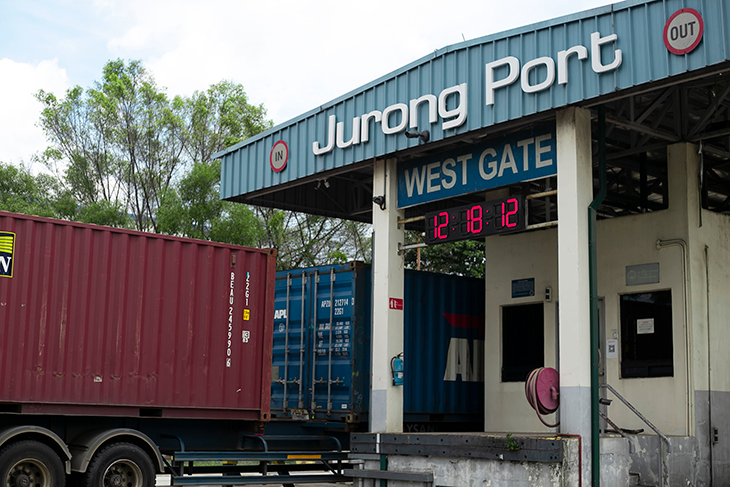 Through the Nooks and Crannies
Through the Nooks and Crannies
Adjacent to this West Gate is the Jurong Scanning Station (JSS) where the containers are first required to be driven through the Radiographic Scanning Portal (RSP) or the Mobile Cargo Inspection System for security checks of the cargo.
At this juncture, ICA IAs are always vigilant as they scrutinise the scanned images to look out for contraband and prohibited goods that might be hidden in nooks and crannies of the vehicles.
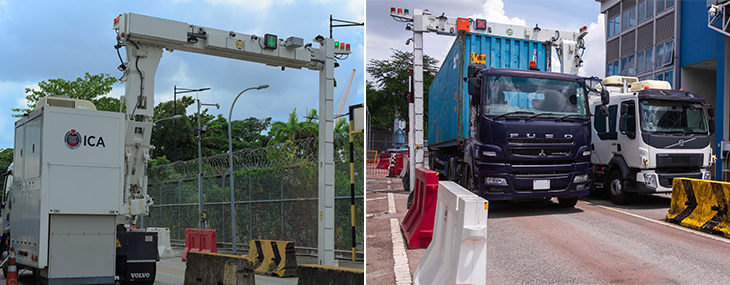
Mobile Cargo Inspection System in Action. PHOTO: Alvin Loh (Left), Joash Tan (Right)
Scanning technologies such as the Mobile Cargo Inspection System has advanced capabilities beyond standard X-ray imaging. It can also perform contraband analysis, radioactive material detection and has special image processing functions including relative density analysis and the highlight of radioactive materials, flammables, and explosives.
If deemed necessary, physical checks are conducted at the JSS Cargo Inspection Pit.
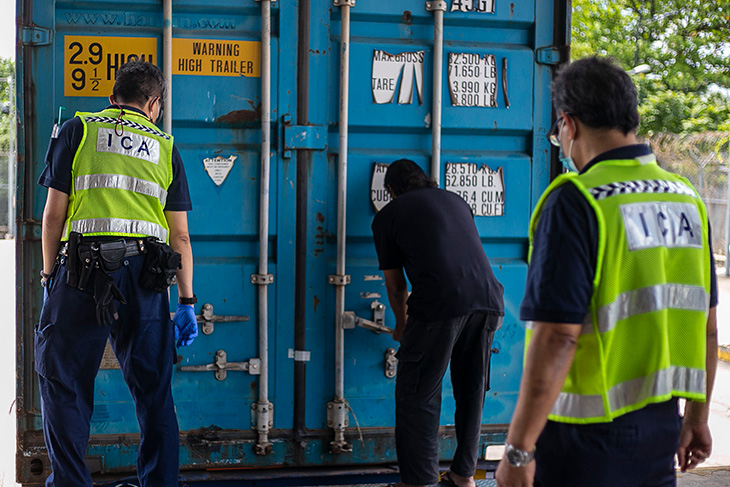
Cranking open the locks of the truck for further investigations. PHOTO: Chloe Low
Once the container was opened, ICA officers started swabbing the cargo – in this case, piles of paper scraps, in the container.
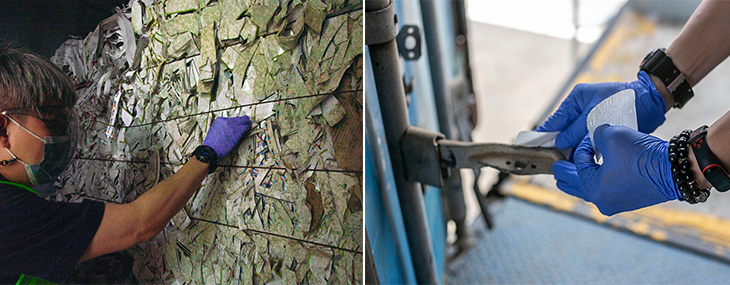
Swabbing every bit. PHOTO: Joash Tan (Left), Chloe Low (Right)
The swabs are then analysed using a handheld device known as the Sabre 5000 IonScan machine which can detect trace amounts of narcotics or explosives.
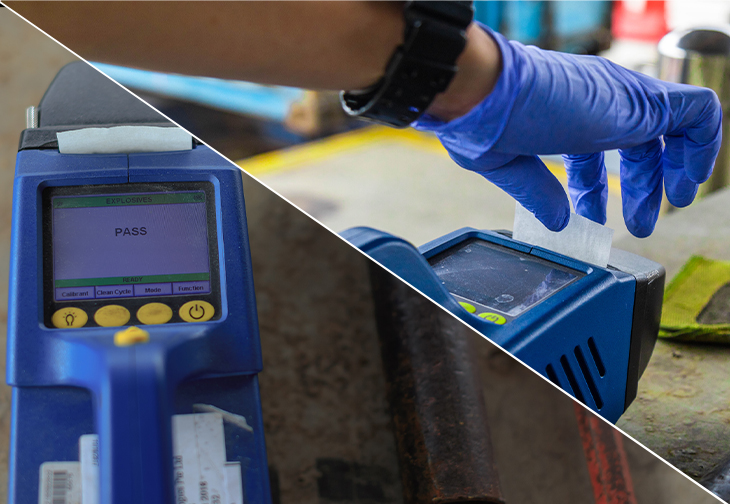
Sabre 5000 at work. PHOTO: Alvin Loh (Left) and Joash Tan (Right)
After the necessary checks were completed, the truck was sealed. This prevents anyone from removing or adding items to the container. It is an offence to break the seal. Anyone found to be compromising the integrity of a checked consignment is liable to be fined under the
Customs (Container) Regulations.
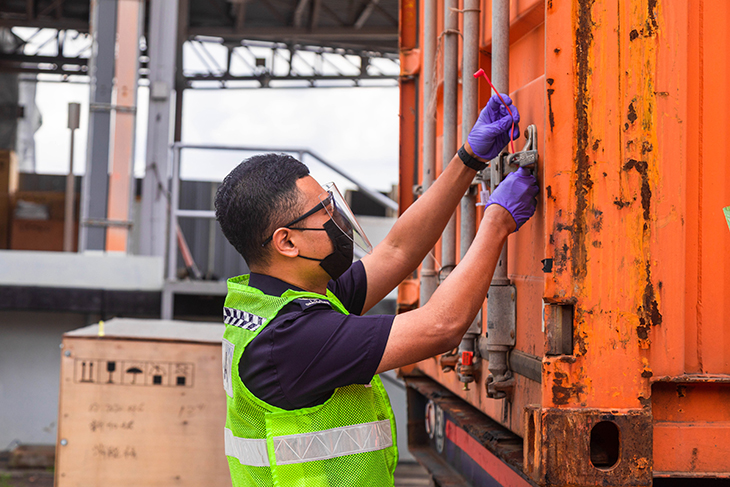
Sealing a truck that has passed a check. PHOTO: Joash Tan
Passed and Go
And that's how construction, livestock and big-ticket items sail through our borders! Just like how travellers and our luggage are screened, the same applies to our purchases before they enter Singapore.
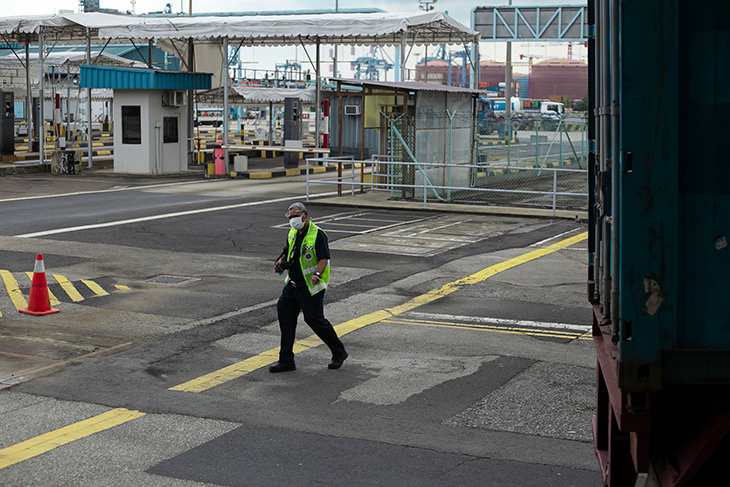
As we left the Port, we gained a newfound respect for our ICA officers who work round the clock to facilitate trade and safe travels while keeping Singapore's borders safe and secure.

















